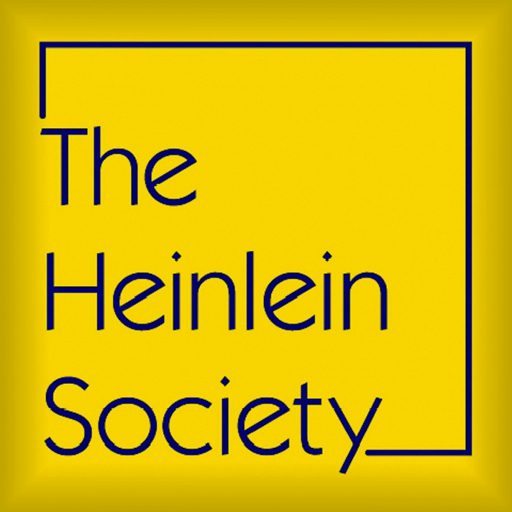Voyage to a Thousand Cares: Background on Slavery in Citizen of the Galaxy
by David M. Silver ©2004
Voyage to a Thousand Cares: Master’s Mate Lawrence with the Africa Squadron, 1844-1846 by C. Herbert Gilliland
One of the more intriguing unwritten back stories in Heinlein’s oeuvre is the story of Colonel Baslim’s rescue of a crew of a ship of Free Traders from slavery. It’s the debt that the Free Traders owe Baslim personally that enables his recruitment of them as couriers against the slavers and, eventually, to call upon their aid to rescue his adopted son, Thorby, from Sargon.
There are little hints in Citizen of the Galaxy about the evils of slavery, including those endured by the infant Thorby, the scars on his back; there’s the unholy glee and hatred he experiences when he burns a slaver; and there’s the mission of Hegemonic Guard. But that’s all fiction. What follows is fact:
We all know a little about The Heinlein Award; and so far as we know them, a little about the judges who select the winners, Dr. Yoji Kondo, chair of that committee, of course, and Greg Bear, Joe Haldeman, Elizabeth Moon, Larry Niven, Jerry Pournelle, Spider Robinson, Stanley Schmidt, and the late Charles Sheffield, all well known SF authors. Two we don’t know much about are the Navy Academy English Professors on the committee: Herb Gilliland and John Hill. Herb joined us on a couple panels we put on at the World Con two years back, in San José; and probably we’ll see both him and John Hill again in Boston next September at Noreascon.
I just finished reading Voyage to a Thousand Cares: Master’s Mate Lawrence with the Africa Squadron, 1844-1846, which is the most recent offering for publication by Professor C. Herbert Gilliland (Naval Institute Press, Annapolis, ©2004, ISBN 1-59114-320-9).
It’s the journal of twenty-four-year-old Master’s Mate, John Clarkson Lawrence, USN, of his voyage aboard the USS Yorktown (not CV-5, lost in World War II, but a 16-gun sailing sloop of war, first commissioned in 1840, crewed by 150 men) against American ships engaged in the slavery trade off West Africa in 1844-46. Yorktown captures two US slavers on this voyage, one before slaves are loaded, and one, the culminating event of the cruise for Master’s Mate Lawrence, after it had loaded more than 900 slaves into a ship of not more than 197 tons capacity, crammed and piled in abject misery atop water casks in a space less than 2,000 square feet, with 400 more planned to take onboard for a voyage from Africa to Brazil. Conditions were so miserable aboard that 200 died before the Yorktown prize crew, of which Lawrence was second senior officer, could sail the vessel the necessary fourteen days to Liberia where the slaves were freed and attempts made to save what lives remained.
Herb Gilliland fills in the blanks, gives us the background facts we need to understand the entries of Lawrence’s journal, and does an admirable job so doing.
Herb and I talked about this story in San Jose; and so of course I waited impatiently for him to finish the work. He told me he’s also considering using John Clarkson Lawrence’s journal as the basis, in the future, of an historical novel, if a suitable publisher becomes interested. It has that certain something that will make a gripping novel. Better yet, Lawrence’s “long-lost diary reveals a literary skill that might have rivaled Melville’s…” [author David Poyer, no mean writer himself]; and a novel with a partial journal form may display that skill. Lawrence’s descriptive abilities are both lyrical and powerful!
But a novel is in the future: here, instead we have the facts as Lawrence wrote them, with his own skill and perception; and we have a time machine into an era we can barely imagine without his aid, and that of Captain Gilliland to explain the much there was to explain. I’m grateful because the journal is enough of a gift from the past from Master’s Mate Lawrence.
I recommend it, for those of you interested in the unwritten back story that might explain the unholy glee and desire for revenge against those who would enslave portrayed by Robert Heinlein in his character Thorby Baslim.
— Best wishes, and thanks to Captain Gilliland for bringing us the voice of Master’s Mate Lawrence.



